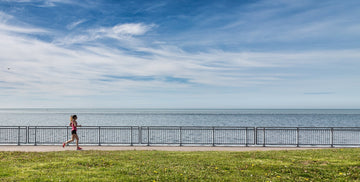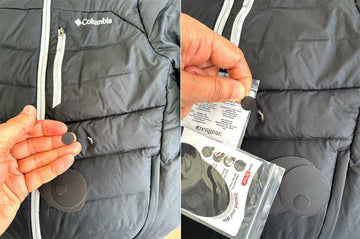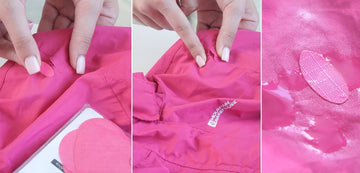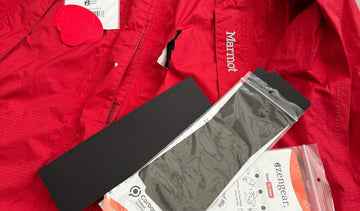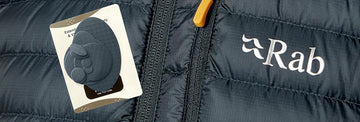How to Tell if You Have Heat Exhaustion: Signs Runners Should Watch Out For
by Emily Jannet on Jun 02, 2023
Heat exhaustion can be a serious condition, particularly for runners who are exposed to prolonged physical exertion in high temperatures. Recognizing the signs and symptoms of heat exhaustion is crucial in order to prevent more severe heat-related illnesses. In this article, we will explore what heat exhaustion is, how it can affect runners, and how to identify and respond to its warning signs effectively.
Understanding Heat Exhaustion
What is Heat Exhaustion?
Heat exhaustion is a heat-related illness that can occur when the body's cooling mechanisms become overwhelmed. The body regulates its temperature through sweating, but excessive sweating and dehydration can lead to imbalances, causing heat exhaustion.
Causes of Heat Exhaustion
Heat exhaustion can result from a combination of factors, including exposure to high temperatures, inadequate fluid intake, and overexertion. Humidity, lack of acclimatization to heat, and certain medications can also contribute to the development of heat exhaustion.
Signs and Symptoms of Heat Exhaustion
Recognizing the signs and symptoms of heat exhaustion is crucial for early intervention and prevention of more severe heat-related conditions. Here are some common indicators to watch out for:
- Increased Body Temperature
One of the primary signs of heat exhaustion is an elevated core body temperature. You may feel unusually hot to the touch, and your body temperature may rise above the normal range of 98.6°F (37°C).
- Excessive Sweating
Heat exhaustion often leads to profuse sweating as the body attempts to cool down. If you find yourself drenched in sweat despite adequate hydration, it may be an indication of heat exhaustion.
- Fatigue and Weakness
Feeling excessively tired, weak, or lethargic can be a sign that your body is struggling to cope with the heat. Heat exhaustion can drain your energy and leave you feeling exhausted, even with minimal physical activity.
- Dizziness and Headache
Heat-induced dizziness and headaches are common symptoms of heat exhaustion. If you experience lightheadedness or a pounding headache, especially in combination with other signs, it's essential to take immediate action.
- Nausea and Vomiting
Heat exhaustion can also manifest as feelings of nausea or an urge to vomit. These symptoms occur due to the body's response to heat stress and can be a clear indication that you're experiencing heat-related distress.
- Rapid Heartbeat
An increased heart rate is another warning sign of heat exhaustion. If you notice your heart racing or beating faster than usual, it may be an indication that your body is struggling to regulate its temperature.
- Muscle Cramps
Muscle cramps, particularly in the legs and abdomen, can occur due to electrolyte imbalances caused by excessive sweating and dehydration. These cramps can be painful and disruptive during physical activity.
- Pale or Clammy Skin
Heat exhaustion can cause changes in skin color and texture. Your skin may appear pale, cool, or clammy to the touch. These changes occur as the body redirects blood flow to vital organs to compensate for heat stress.
Heat Exhaustion in Runners
Importance of Recognizing Heat Exhaustion
For runners, recognizing the signs of heat exhaustion is crucial for their well-being. Ignoring or downplaying the symptoms can lead to more severe heat-related illnesses, such as heat stroke, which can be life-threatening.
Risk Factors for Runners
Runners face specific risk factors that make them more susceptible to heat exhaustion. Factors such as intense physical exertion, extended periods of running, and running in hot and humid conditions can increase the likelihood of heat-related complications.
How to Identify Heat Exhaustion
Recognizing heat exhaustion promptly can help prevent further complications. Here are some steps you can take to identify if you're experiencing heat exhaustion:
- Listen to Your Body
Pay attention to your body's signals. If you start feeling unwell or notice any unusual symptoms while running or exercising in hot conditions, it's crucial to listen to your body and take appropriate action.
- Monitor Your Heart Rate
Keep track of your heart rate during physical activity. If your heart rate becomes significantly elevated and doesn't return to normal even during rest periods, it may indicate heat exhaustion.
- Assess Your Hydration Level
Monitor your hydration status. If you're not adequately hydrated or notice a decrease in urine output, it's a sign that your body may be struggling to regulate its temperature.
- Recognize the Signs
Be familiar with the signs and symptoms of heat exhaustion mentioned earlier in this article. By being aware of the warning signs, you can take proactive steps to address the condition promptly.
Immediate First Aid for Heat Exhaustion
If you suspect heat exhaustion, it's essential to take immediate first aid measures. Here are steps to follow:
1. Move to a Cooler Area
Get out of the heatand find a cooler environment. Seek shade or enter an air-conditioned space to help lower your body temperature.
2. Hydrate and Replenish Electrolytes
Drink cool water or a sports drink that contains electrolytes to rehydrate your body. Avoid alcoholic or caffeinated beverages as they can further dehydrate you.
3. Apply Cooling Measures
Use cool, wet towels or ice packs on your neck, forehead, and armpits to help lower your body temperature. Taking a cool shower or using a misting fan can also provide relief.
4. Seek Medical Attention
If your symptoms persist, worsen, or if you experience confusion, fainting, or seizures, it's important to seek immediate medical attention. Heat exhaustion can progress to heat stroke, a severe and potentially life-threatening condition.
Prevention and Precautions
Taking preventive measures can significantly reduce the risk of heat exhaustion. Here are some tips to protect yourself while running in hot conditions:
- Stay Hydrated
Drink plenty of fluids before, during, and after your run to maintain proper hydration. Aim to consume water or electrolyte-rich beverages at regular intervals.
- Dress Appropriately
Wear lightweight, breathable clothing that allows for sweat evaporation. Opt for light colors that reflect sunlight rather than absorbing heat.
- Avoid Peak Heat Hours
Plan your runs during the cooler parts of the day, such as early morning or evening. Avoid running during peak heat hours when the sun is at its strongest.
- Gradually Acclimate to Hotter Conditions
If you're not accustomed to running in hot weather, gradually acclimate your body to the heat by starting with shorter runs and gradually increasing the duration and intensity over time.
Bottom Line
Heat exhaustion is a serious concern, particularly for runners who engage in physical activity under hot conditions. Recognizing the signs and symptoms of heat exhaustion is crucial to prevent more severe heat-related illnesses. By understanding the warning signs, taking preventive measures, and responding promptly with first aid, runners can stay safe and continue to enjoy their passion for running.

